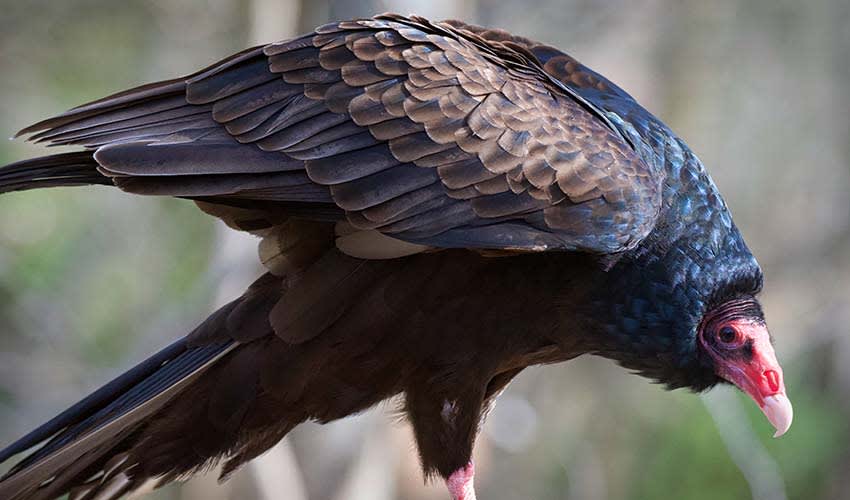Cathartes
Stealthy, soaring recyclers that help keep nature clean and disease-free
These birds are nature’s cleanup crew, thriving on carrion and helping to prevent the spread of disease by removing decaying animals from the landscape. Members of this genus are found throughout North, Central, and South America, with species adapted to everything from tropical rainforests to open grasslands. Despite their grim diet, Cathartes species are incredibly graceful in the air and play a vital role in maintaining healthy ecosystems.
All three are medium to large-sized vultures with long, broad wings, a bald head, and an excellent sense of smell—a rarity among birds. In fact, Cathartes vultures are among the few birds known to locate food by scent rather than by sight. Their nostrils are perforated, allowing airflow through the beak, which enhances their ability to detect the faint odor of decaying flesh from up to a mile away.
The turkey vulture, the most widespread and recognizable species, can soar in lazy circles with its wings held in a shallow “V” shape, often wobbling slightly in flight. Despite their awkward, hunched appearance on land, these birds are incredibly graceful flyers, using rising thermal currents to glide effortlessly for hours without flapping their wings. The lesser and greater yellow-headed vultures, found mainly in Central and South America, are more tropical in range and are particularly well-adapted to wetland and forest habitats, where visual foraging is harder and a keen nose becomes essential.
These vultures lack a syrinx, the vocal organ of most birds, so they can’t sing or call—they mostly communicate through hisses and grunts. Their bald heads are not just for show; it’s a hygienic adaptation that helps keep them clean while feeding on messy carcasses. Turkey vultures are even known to urinate on their own legs—a strange but effective method to cool down and kill bacteria picked up from carrion. Also, despite their association with death, they are highly social, often roosting and feeding in groups.
Species in this genus
Turkey vulture
A bird that quietly keeps the environment clean


